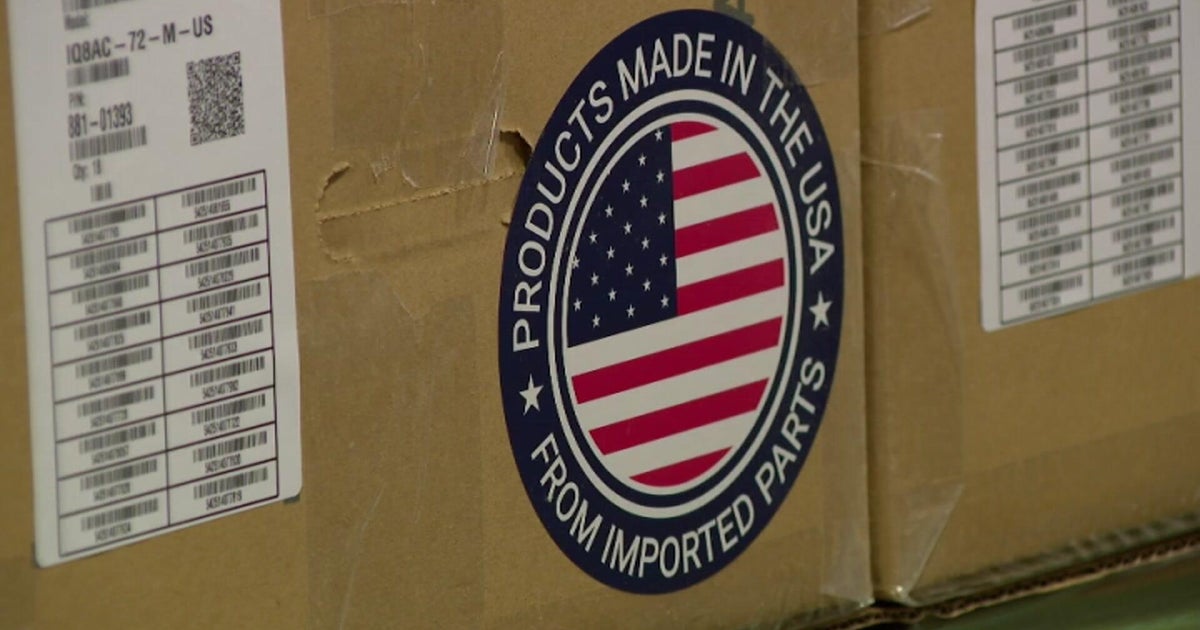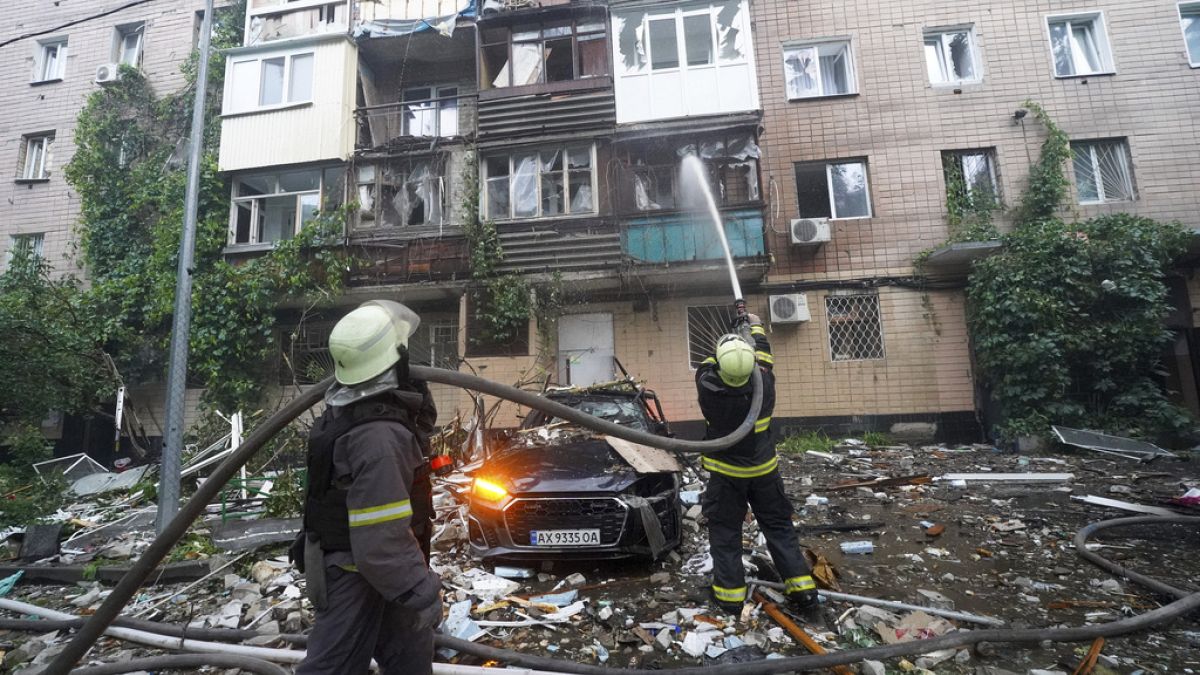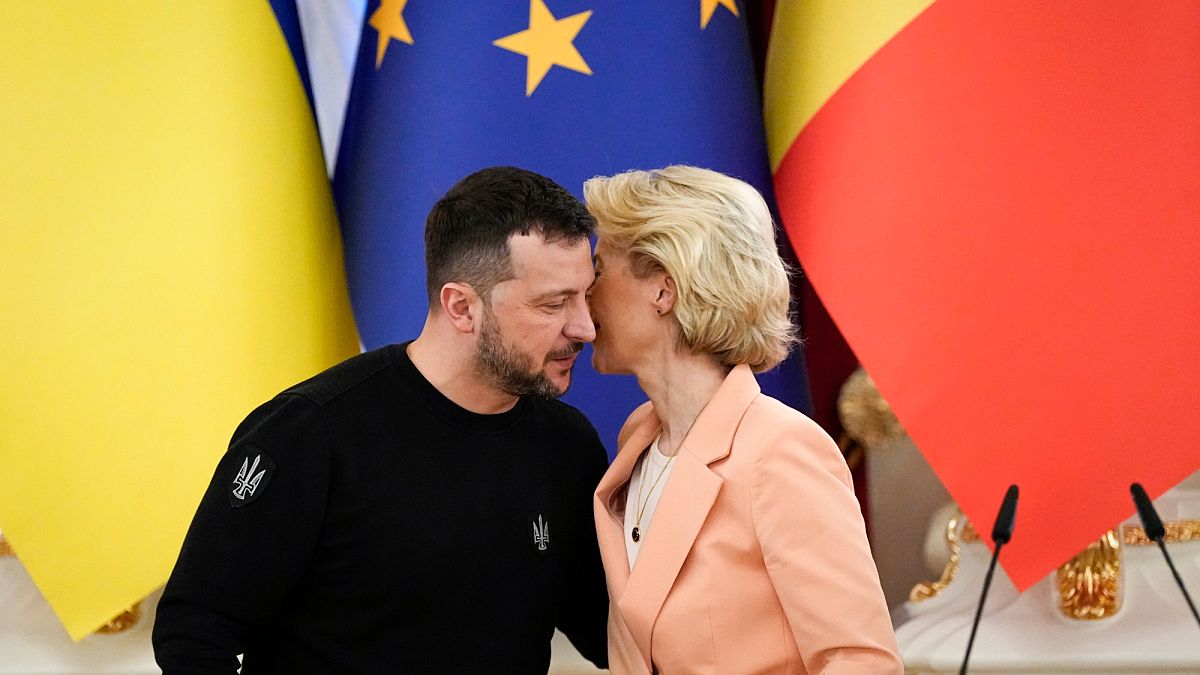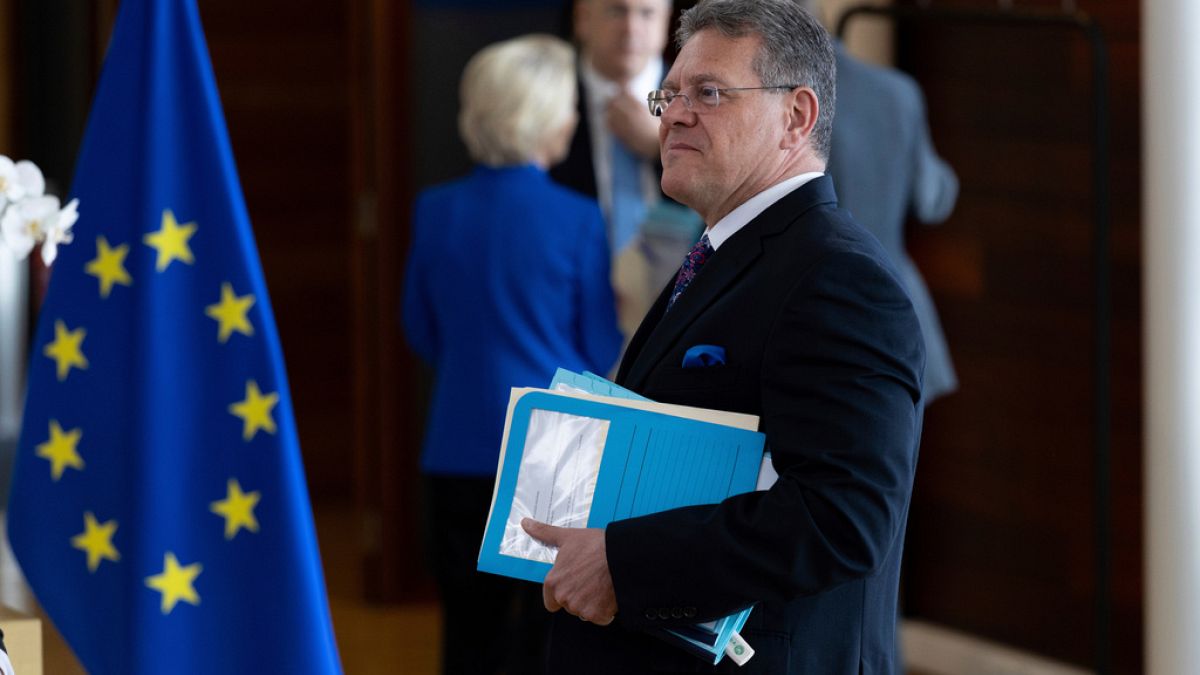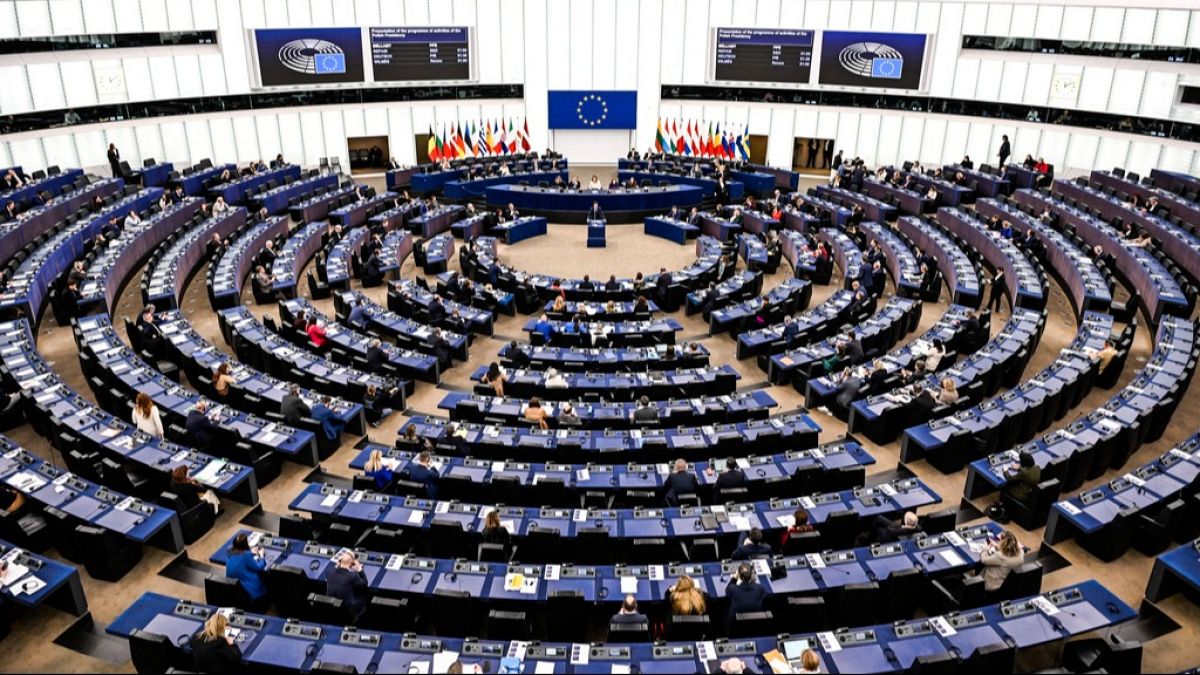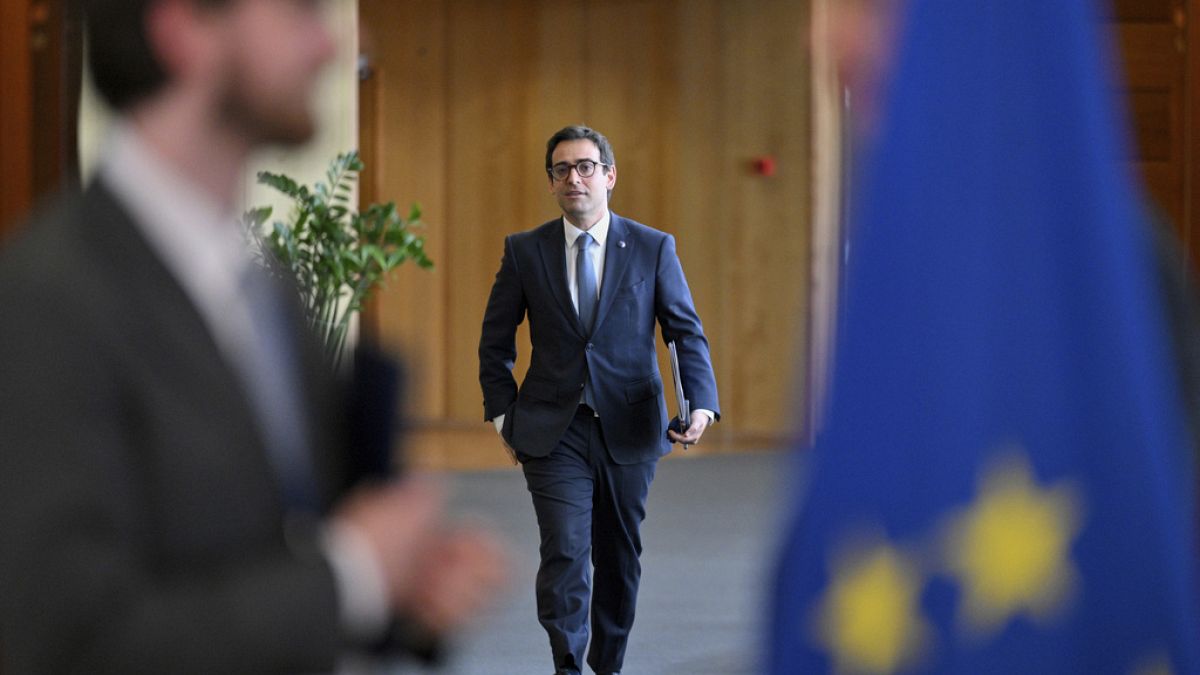World
Explained: The EU’s last-resort tool to chase after Russia’s enablers

The European Union is getting serious about sanctions circumvention.
After slapping Russia with ten rounds of sanctions at a record-breaking speed, it has become painfully evident that not everything is working according to the plan.
Brussels has detected an unusual surge in EU-made goods being exported to countries that are either located in Russia’s periphery or politically close to the Kremlin.
Coincidentally, these products, which include machinery parts, valves, cranes, semiconductors, chemicals and even daily appliances such as microwaves, dishwashers and freezers, happen to be strictly prohibited in EU-Russia trade.
These anomalous transactions do not often correspond with the economic needs or historic trends of the purchasing countries, leading policymakers to conclude that a great share of this merchandise is being surreptitiously re-routed to Moscow and used to prop up the armed forces trying to invade Ukraine.
In other words, circumvention.
This explains why the new raft of EU sanctions, approved on Wednesday after a month and a half of behind-the-scenes negotiations, has as its prime goal the crackdown on evasion.
The penalties target three companies from Hong Kong, two from the United Arab Emirates, two from Uzbekistan, one from Syria, one from Armenia and one from Iran, all of them suspected of helping the Kremlin get its hands on blacklisted goods.
This marks the first time that firms based in China, one of the bloc’s largest trading partners, become directly entangled in the EU’s hard-hitting response to Russia’s war of aggression.
But the real novelty in the latest package of sanctions is a radical tool that will allow Brussels to go after entire countries, rather than specific businesses, that are suspected of enabling circumvention.
The tool will be triggered when the evasion is considered widespread, systematic and long-lasting, taking place across a variety of companies, and will restrict the sale and transfer of a product, or group of products, to the country under scrutiny.
In practice, the tool will declare the nation to be an active accomplice in the circumvention – or at least a permissive participant that turns the other way.
It will come, however, with strings attached.
EU officials insist the tool will kick in as a “last resort” in exceptional circumstances, when other methods, such as diplomatic outreach and targeted restrictions, have failed to yield results.
The European Commission will propose the activation only after drawing up a thorough data analysis and engaging in consultations with the suspected country. Member states will then decide by unanimity whether to move ahead.
The mechanism will apply to blacklisted products that are assembled by EU companies or in EU territory, rather than those made elsewhere, and might enhance Russia’s ability to wage war in Ukraine.
“We don’t target alternative suppliers,” said a senior EU official, speaking on condition of anonymity. “There is always an EU link.”
Once triggered, the anti-circumvention tool will be under constant review and switched off if the penalised country provides sufficiently convincing assurances that the evasion will be stamped out for good.
Given its stringent conditions for activation and the diplomatic risks of publicly name-shaming another nation as a circumvention enabler, it is unlikely the new tool will be triggered on a frequent and regular basis.
Instead, officials and diplomats suggest, the mechanism will be used as a carrot-and-stick strategy by David O’Sullivan, the special envoy for EU sanctions, to prod countries into respecting the bloc’s regulations.
Over the past months, O’Sullivan has travelled to the United Arab Emirates, Turkey, Kyrgyzstan, Kazakhstan, Uzbekistan, Serbia and Armenia, with Georgia scheduled next.

World
Trump's tariff collections expected to grow in June US budget data

World
17-year-old British teen dies after beach sand tunnel collapses during family vacation: report
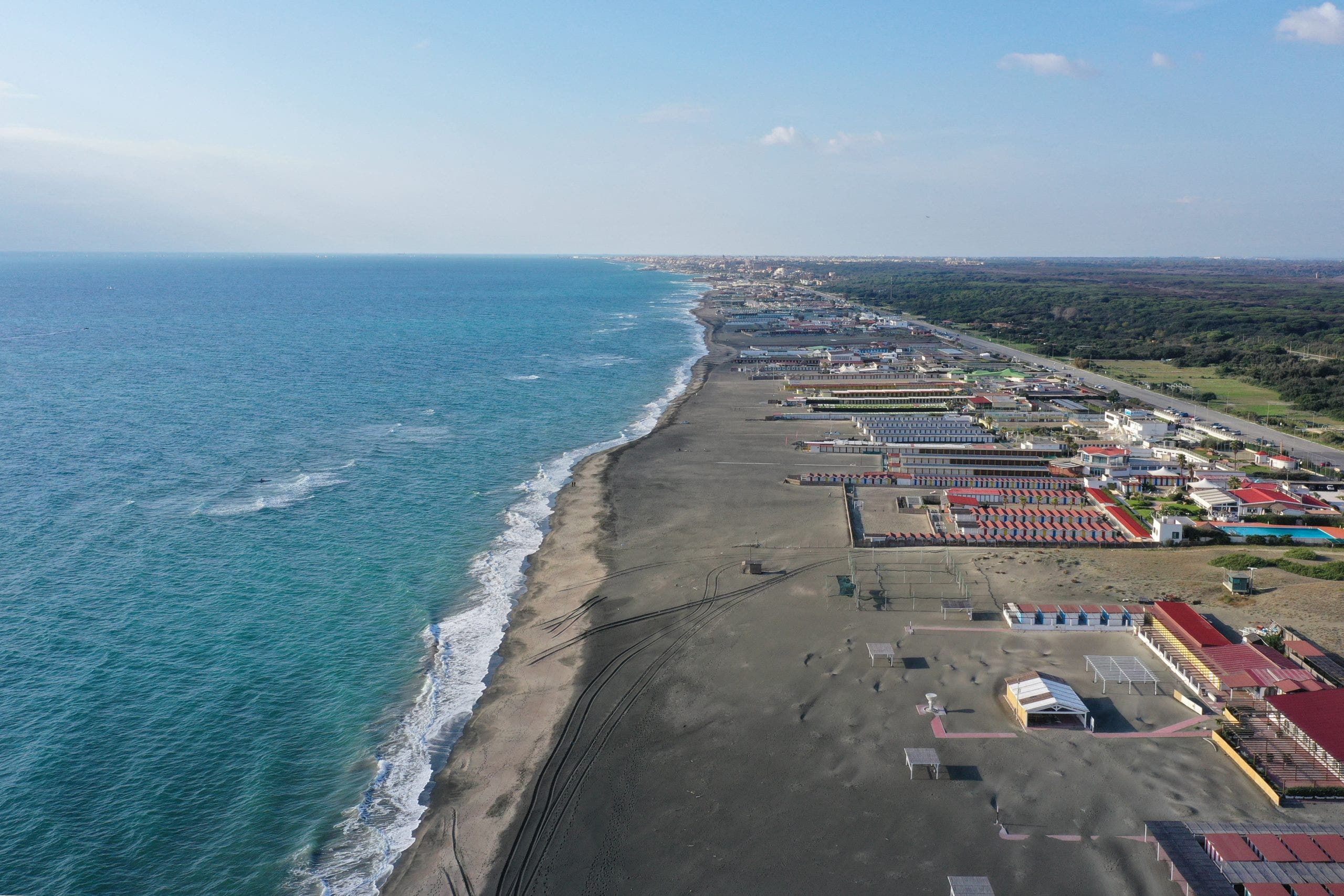
NEWYou can now listen to Fox News articles!
A day at the beach turned tragic when a 17-year-old boy was killed after a sand tunnel he was digging abruptly collapsed, burying him alive.
The teen, identified as Riccardo Boni by several Italian media outlets, was vacationing in Montalto di Castro, Italy, with his family when the incident occurred on Thursday, July 10.
Boni’s family was staying at a resort in Montalto di Castro, approximately 70 miles north of Rome. The collapse happened around 3:00 p.m. local time while he was on the beach with his father and siblings.
According to local outlet Corriere della Sera, Riccardo Boni and his younger siblings had moved closer to the shoreline, where they began digging a large hole that was reportedly nearly five feet deep, in a more secluded area of the beach. Meanwhile, their father was nearby, dozing off under a beach umbrella.
FATHER AND SON DROWN IN LAKE MICHIGAN DURING WEEKEND FAMILY BOATING TRIP TRAGEDY
An aerial view shows Lido of Ostia, Rome’s seaside, with private beaches closed for the winter season, on November 10, 2024. (Photo by Andrea BERNARDI / AFP) (Photo by ANDREA BERNARDI/AFP via Getty Images)
Suddenly, the walls of the tunnel gave way, trapping the teen beneath the sand, the outlet reported.
The boy remained buried until his father woke up and realized his oldest son was missing. One of his brothers cried out, “Riccardo is under the sand,” according to The Sun. The siblings pointed to the location of the collapsed tunnel, prompting their father and nearby beachgoers to rush over and frantically dig in search of him.
FREAK ACCIDENT AT THE BEACH SENDS TEEN TO ICU AS MOM WARNS OF WATERFRONT DANGER
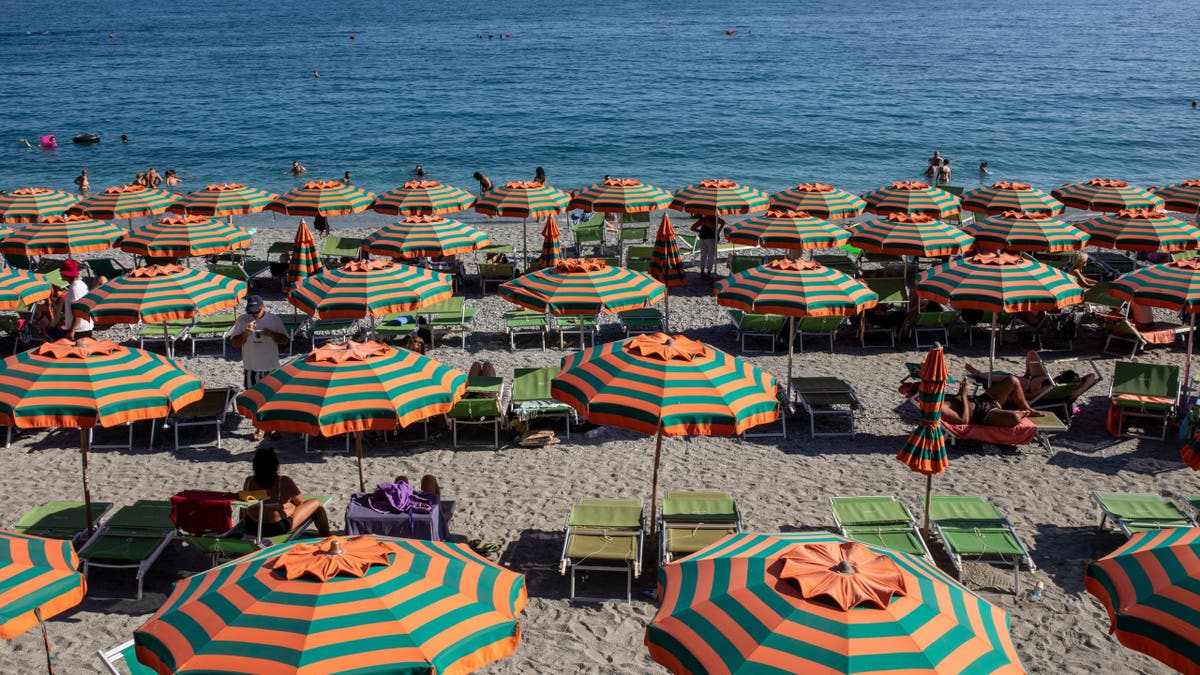
A view of a beach in Cinque Terre, Liguria, Italy on July 27, 2024. (Photo by Gian Marco Benedetto/Anadolu via Getty Images)
Tragically, the boy was found buried in the sand, unresponsive and showing no signs of life. First responders arrived within minutes, including an air ambulance, working to revive him, but it was too late, and the boy could not be saved, the outlet reported.
“No-one realized what had happened,” Lieutenant Daniele Tramontana, the Carabiniere officer leading the police investigation, told The Sun.
AMERICAN TOURIST REPORTEDLY IMPALED ON ROME’S COLOSSEUM FENCE AS DOZENS WATCH IN HORROR
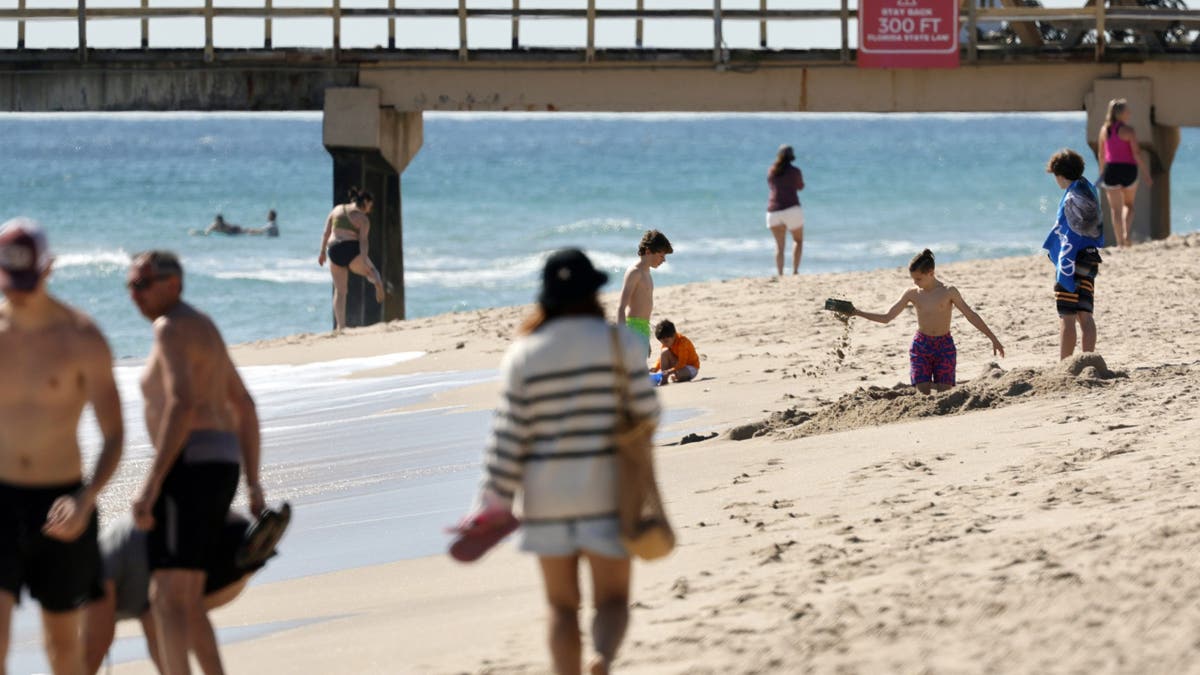
Children dig a hole on a beach as people walk by. (Amy Beth Bennett/South Florida Sun Sentinel/Tribune News Service via Getty Images)
“They lost a lot of time because they couldn’t see him. When they realized he was missing they began to look for him but it was too late,” he continued.
A witness on the beach told Corriere della Serra that “no one on the beach had heard the teenager screaming because he was completely buried within minutes.”
A police investigation has since been opened “against persons unknown” in connection with the fatal accident, the outlet added, as authorities consider whether an autopsy will be required.
“I have spoken to colleagues, and we have never heard of anything like this happening before in Italy,” Tramontana said. “We deal with terrible situations all the time, but we can’t imagine how a game on the beach ended up this way.”
Stepheny Price is a writer for Fox News Digital and Fox Business. She covers topics including missing persons, homicides, national crime cases, illegal immigration, and more. Story tips and ideas can be sent to stepheny.price@fox.com
World
US continues arms deliveries to Ukraine – for how long?

Published on
The war in Ukraine is continuing unabated. Just hours after a phone call between Donald Trump and Vladimir Putin last week, Russia fired a record number of drones and missiles at Ukraine.
According to the Ukrainian government, in June alone, Russia sent over 330 missiles, 5,000 combat drones and 5,000 gliding bombs against mostly civilian targets.
Trump seems to be increasingly fed up with Moscow, announcing more arms deliveries to Kyiv only days after pausing weapons shipments. “Ukraine has to defend itself” is Trump’s latest mantra.
The surprise move came after a phone call Trump had with Volodymyr Zelenskyy which the Ukrainian president described as a “fruitful conversation”. For now, the arming of Ukraine seems to be safe. Will this impress Putin?
Can Europe step up and replace US weapons in case Trump changes his mind again?
So, serious questions for this week’s panel: Tinatin Akhvlediani, research fellow in the EU Foreign Policy Unit at the Centre for European Policy Studies, Ania Skrzypek, research director at the Foundation for European Progressive Studies and Michelle Haas, researcher at the Ghent Institute for International and European Studies and an associate fellow at the Egmont Institute.
Second topic: At their first bilateral summit, EU candidate Moldova pushed Brussels for accelerated accession. Because of repeated hybrid attacks from Russia, Moldova wants to join the 27 as soon as possible and is now eager to align with EU standards as grounds for decoupling its enlargement track from Ukraine’s.
For now, Brussels appears unwilling to do that. But if Moldova can continue to demonstrate tangible reform, economic resilience, can the case for accelerated accession be ignored? Is the EU sending the right signal to countries threatened by Russia?
And finally, the panel discussed the role of women in the military.
All across Europe, conscription debates are heating up — and this time, women are part of the equation. Faced with rising security threats and stretched military resources, several countries are reconsidering long-held traditions.
The idea of drafting women is gaining traction. On the first day of its EU presidency, Denmark just did it as the last Scandinavian country.
But expanding conscription also raises big questions about defence budgets — can Europe afford a larger, more inclusive force, or will it strain already tight military spending? Should financial considerations even play a role here?
Is a mandatory female contribution to the military the ultimate achievement of gender equality? What about the argument, joining the military should be a personal choice?
-

 Business1 week ago
Business1 week agoSee How Trump’s Big Bill Could Affect Your Taxes, Health Care and Other Finances
-

 Politics1 week ago
Politics1 week agoVideo: Trump Signs the ‘One Big Beautiful Bill’ Into Law
-

 Culture1 week ago
Culture1 week ago16 Mayors on What It’s Like to Run a U.S. City Now Under Trump
-

 News1 week ago
News1 week agoVideo: Who Loses in the Republican Policy Bill?
-

 Science1 week ago
Science1 week agoFederal contractors improperly dumped wildfire-related asbestos waste at L.A. area landfills
-

 Technology1 week ago
Technology1 week agoMeet Soham Parekh, the engineer burning through tech by working at three to four startups simultaneously
-

 World1 week ago
World1 week agoRussia-Ukraine war: List of key events, day 1,227
-
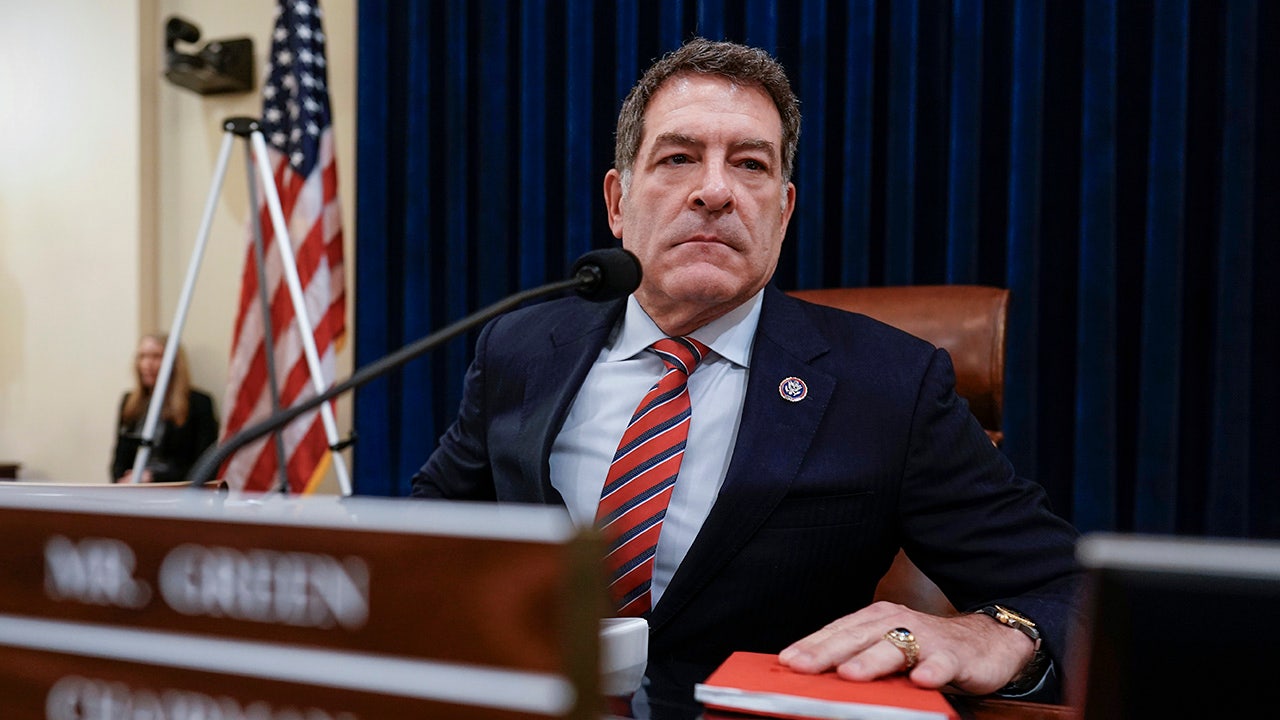
 Politics1 week ago
Politics1 week agoCongressman's last day in office revealed after vote on Trump's 'Big, Beautiful Bill'
